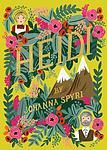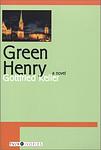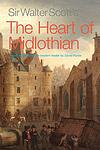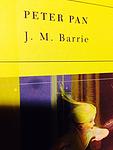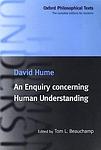The Greatest Scottish, Japanese, Swiss Books of All Time
Click to learn how this list is calculated.
This list represents a comprehensive and trusted collection of the greatest books. Developed through a specialized algorithm, it brings together 305 'best of' book lists to form a definitive guide to the world's most acclaimed books. For those interested in how these books are chosen, additional details can be found on the rankings page.
Genres
Countries
Date Range
Reading Statistics
Click the button below to see how many of these books you've read!
Download
If you're interested in downloading this list as a CSV file for use in a spreadsheet application, you can easily do so by clicking the button below. Please note that to ensure a manageable file size and faster download, the CSV will include details for only the first 500 books.
Download-
1. The Tale of Genji by Murasaki Shikibu
"The Tale of Genji" is a classic work of Japanese literature from the 11th century, often considered the world's first novel. The story revolves around the life of Genji, the son of an emperor, exploring his political rise, romantic relationships, and the complex court life of the Heian era. The novel is celebrated for its detailed characterization and its analysis of the different forms of love.
The 155th Greatest Book of All Time -
2. The Prime of Miss Jean Brodie by Muriel Spark
The novel is set in 1930s Edinburgh and follows the story of six girls under the tutelage of an unconventional teacher, Miss Jean Brodie. Miss Brodie, in her prime, takes it upon herself to educate the girls about life, love, politics, and art, often disregarding the traditional curriculum. The narrative explores the influence of Miss Brodie on the girls, the consequences of her nonconformist teachings, and the ultimate betrayal that leads to her downfall.
The 191st Greatest Book of All Time -
3. The Wind-Up Bird Chronicle by Haruki Murakami
A man's search for his wife's missing cat evolves into a surreal journey through Tokyo's underbelly, where he encounters a bizarre collection of characters with strange stories and peculiar obsessions. As he delves deeper, he finds himself entangled in a web of dreamlike scenarios, historical digressions, and metaphysical investigations. His reality becomes increasingly intertwined with the dream world as he grapples with themes of fate, identity, and the dark side of the human psyche.
The 277th Greatest Book of All Time -
4. Never Let Me Go by Kazuo Ishiguro
The novel is a haunting tale of three friends, who grow up together at a seemingly idyllic English boarding school. As they mature, they discover a dark secret about their school and the purpose of their existence, which is to become organ donors for the rest of society. The story is a profound exploration of what it means to be human, the morality of scientific innovation, and the heartbreaking reality of love and loss.
The 387th Greatest Book of All Time -
5. The Private Memoirs and Confessions of a Justified Sinner by James Hogg
Set in 18th century Scotland, the novel explores the psychological downfall of a deeply religious man who believes he is predestined for salvation and thus justified in committing a series of murders. He is driven to this path of self-destruction by a mysterious stranger who may be either a devilish tempter or a manifestation of his own deranged mind. The book serves as a critique of religious fanaticism and a chilling exploration of the dark side of human nature.
The 416th Greatest Book of All Time -
6. The Wealth of Nations by Adam Smith
This influential economic book presents a groundbreaking theory that argues for free market economies. The author posits that individuals acting in their own self-interest within a system of natural liberty will result in societal benefit, a concept often referred to as the "invisible hand" theory. The book also critiques mercantilism and explores concepts such as the division of labor, productivity, and free markets. It is widely considered one of the foundational texts in the field of economics.
The 425th Greatest Book of All Time -
7. The Temple of the Golden Pavilion by Yukio Mishima
This novel follows the life of a young man named Mizoguchi, who becomes an acolyte at a famous Zen temple in Kyoto. Mizoguchi is afflicted with a stutter and a severe inferiority complex, which leads him to develop a destructive obsession with the temple's beauty. As he struggles with his personal demons, his fixation escalates into a desire to destroy the temple. The book is a profound exploration of beauty, obsession, and the destructive nature of ideals.
The 614th Greatest Book of All Time -
8. I'm Not Stiller by Max Frisch
The book is a profound exploration of identity and the human condition, revolving around a man who is arrested upon his return to his home country, Switzerland, after spending time in America. Although he insists he is not the man, Stiller, that everyone believes him to be, his protests are ignored. The story unfolds as he writes in his prison cell, reflecting on his past life and relationships, and grappling with the question of who he truly is. It's a thought-provoking narrative that challenges conventional notions of selfhood and personal identity.
The 684th Greatest Book of All Time -
9. Lanark by Alasdair Gray
"Lanark" is an unconventional narrative that combines elements of fantasy, dystopia, and realism. The protagonist, a man named Lanark, moves through two parallel existences. In one, he's a young man named Duncan Thaw in post-war Glasgow, struggling with his artistic ambitions and personal relationships. In the other, he's Lanark in the grim, bureaucratic city of Unthank, suffering from a mysterious skin condition and grappling with his identity and purpose. The novel explores themes of love, alienation, creativity, and the human condition, presenting a complex and thought-provoking portrait of life and society.
The 748th Greatest Book of All Time -
10. Jakob Von Gunten by Robert Walser
This novel is a first-person account of a young man who leaves his privileged life to enroll at a school for servants in Berlin. The protagonist's observations and experiences in the school, his interactions with the headmaster and other students, and his internal struggles and reflections form the crux of the story. The narrative, imbued with irony and dark humor, explores themes of power, submission, individuality, and the absurdity of societal norms and expectations.
The 763rd Greatest Book of All Time -
11. Heidi by Johanna Spyri
"Heidi" is a heartwarming tale about a young orphan girl named Heidi who is sent to live with her grumpy grandfather in the Swiss Alps. Despite the initial challenges she faces, Heidi's pure and joyful spirit brings warmth and happiness to the people around her. Through her adventures and friendships, Heidi learns important lessons about love, resilience, and the beauty of nature.
The 802nd Greatest Book of All Time -
12. Green Henry by Gottfried Keller
"Green Henry" is a semi-autobiographical novel that chronicles the life of a young man who dreams of becoming a painter but faces countless obstacles on his journey. The protagonist leaves his Swiss village and travels to Munich to study art, but his lack of discipline and financial difficulties force him to return home. After his mother's death, he begins to reassess his life and eventually finds his place in society. The novel explores themes of identity, ambition, and the struggle between individual desires and societal expectations.
The 806th Greatest Book of All Time -
13. The Heart Of Midlothian by Sir Walter Scott
The novel is a historical tale set in 18th-century Scotland, revolving around Jeanie Deans, a young woman of strong moral character, who embarks on a daunting journey from Edinburgh to London to seek a royal pardon for her wrongfully accused sister, Effie, who faces execution. Along the way, Jeanie encounters various characters from different strata of society, confronting issues of justice, morality, and national identity. Her steadfast loyalty and unwavering principles highlight the cultural and social tensions of the time, as the narrative intertwines personal drama with broader historical events, including the Porteous Riots and the influence of the Scottish Reformation.
The 873rd Greatest Book of All Time -
14. Snow Country by Yasunari Kawabata
"Snow Country" is a poignant tale of a tragic love affair between a wealthy city-dweller and a provincial geisha. Set in a remote hot-spring town in the snowy Japanese mountains, the story explores the depth of human emotions, loneliness, and the ephemeral nature of beauty and love. The narrative is filled with vivid imagery and symbolism, reflecting the melancholic and transient beauty of the snow country, and the inevitable fate of the characters.
The 897th Greatest Book of All Time -
15. Norwegian Wood by Haruki Murakami
Set in Tokyo during the late 1960s, the novel follows a college student as he navigates a complex love triangle while grappling with his own mental health and the societal pressures of the time. He's torn between his love for a beautiful but emotionally troubled woman and his growing feelings for a lively, outgoing classmate. As he confronts his past, present, and future, the narrative explores themes of love, loss, and personal growth.
The 917th Greatest Book of All Time -
16. The Narrow Road to the Deep North by Matsuo Bashō
"The Narrow Road to the Deep North" is a travelogue that depicts the author's journey through the remote and desolate northern regions of Japan. The narrative combines prose and haiku poetry to capture the beauty and spirituality of nature, as well as the author's introspective thoughts and philosophical insights. The journey is not just physical but also spiritual, as the author seeks to understand his place in the world and the essence of the human condition.
The 930th Greatest Book of All Time -
17. The Sea of Fertility by Yukio Mishima
"The Sea of Fertility" is a four-part epic that follows the life of Shigekuni Honda, a man who believes in reincarnation. The series spans several decades, beginning in the early 20th century and ending in the 1970s, and explores Japanese history, culture, and spirituality. As Honda encounters individuals he believes to be the reincarnations of his childhood friend, he grapples with questions of identity, mortality, and the nature of the soul.
The 941st Greatest Book of All Time -
18. Peter And Wendy by J. M. Barrie
"Peter And Wendy" by JM Barrie is a beloved children's classic that tells the enchanting story of a young girl named Wendy Darling who, along with her two brothers, embarks on a magical adventure to the whimsical world of Neverland. There, they encounter the mischievous and eternal boy, Peter Pan, and his fairy companion, Tinker Bell. Together, they face thrilling escapades, battles with the villainous Captain Hook, and discover the importance of imagination, friendship, and the power of never growing up.
The 957th Greatest Book of All Time -
19. Some Prefer Nettles by Junichiro Tanizaki
"Some Prefer Nettles" is a novel that explores the complexities of a failing marriage in early 20th century Japan. The main characters, a husband and wife, are both aware of their fading love for each other and are drawn to other people, but are hesitant to divorce due to societal pressures and the welfare of their young son. The novel also delves into the cultural tension between traditional Japanese customs and the encroaching influence of Western culture.
The 962nd Greatest Book of All Time -
20. An Enquiry Concerning Human Understanding by David Hume
This philosophical work explores the nature of human knowledge, arguing that all of our understanding comes from experience rather than innate ideas. The author challenges the idea of causality, suggesting that our belief in cause and effect is based on habit rather than logical reasoning. The book also discusses the limitations of human understanding, including the inability to fully comprehend the concept of God or the soul, and the impossibility of certain knowledge. The author's skepticism about traditional philosophical concepts has had a significant influence on later philosophers and the field of epistemology.
The 977th Greatest Book of All Time -
21. Rashomon and Seventeen Other Stories by Ryunosuke Akutagawa
"Rashomon and Seventeen Other Stories" is a collection of narratives that delve into the depths of human nature, exploring themes such as morality, truth, and the complexities of the human psyche. The stories, set in various periods of Japanese history, range from tales of ancient samurai to accounts of disturbing personal experiences, offering a rich and diverse exploration of Japanese culture and society. The title story, "Rashomon," is a psychological examination of a servant's moral dilemma during a time of civil unrest.
The 1050th Greatest Book of All Time -
22. Thousand Cranes by Yasunari Kawabata
"Thousand Cranes" is a story set in post-war Japan, revolving around the life of a young man who is entangled in a complex relationship with three women. These women are linked to his deceased father and a shared tea ceremony set, symbolizing the cultural and generational tensions that exist. The narrative explores themes of love, loneliness, tradition, and the haunting burden of the past.
The 1085th Greatest Book of All Time -
23. Trainspotting by Irvine Welsh
This novel is a gritty, raw portrayal of a group of heroin addicts living in Edinburgh, Scotland. The narrative is non-linear and told from multiple perspectives, providing a deep dive into the minds and lives of these characters. The story explores themes of poverty, addiction, friendship, and the struggle to escape one's circumstances, all set against the backdrop of a bleak urban landscape. It is known for its strong Scottish dialect, graphic content, and dark humor.
The 1099th Greatest Book of All Time -
24. Memories, Dreams, Reflections by Carl Jung
This book is an autobiography of a renowned psychologist who shares his life experiences, insights, and the development of his theories. The narrative delves into his childhood, his career, his relationship with Sigmund Freud, and his exploration into the human psyche. It also provides an in-depth look at the author's dreams and visions, which greatly influenced his work, and his thoughts on subjects such as life after death, reincarnation, and the collective unconscious.
The 1124th Greatest Book of All Time -
25. Belle du Seigneur by Albert Cohen
"Belle du Seigneur" is a tragic love story set in the 1930s, revolving around a high-ranking Jewish official who works for the League of Nations and his passionate affair with a married Swiss aristocrat. The narrative delves deep into their intense relationship, exploring themes of obsession, self-destruction, and existential despair, all set against the backdrop of the impending Second World War. The novel is also notable for its satirical portrayal of diplomatic life and its exploration of Jewish identity.
The 1149th Greatest Book of All Time
Reading Statistics
Click the button below to see how many of these books you've read!
Download
If you're interested in downloading this list as a CSV file for use in a spreadsheet application, you can easily do so by clicking the button below. Please note that to ensure a manageable file size and faster download, the CSV will include details for only the first 500 books.
Download









